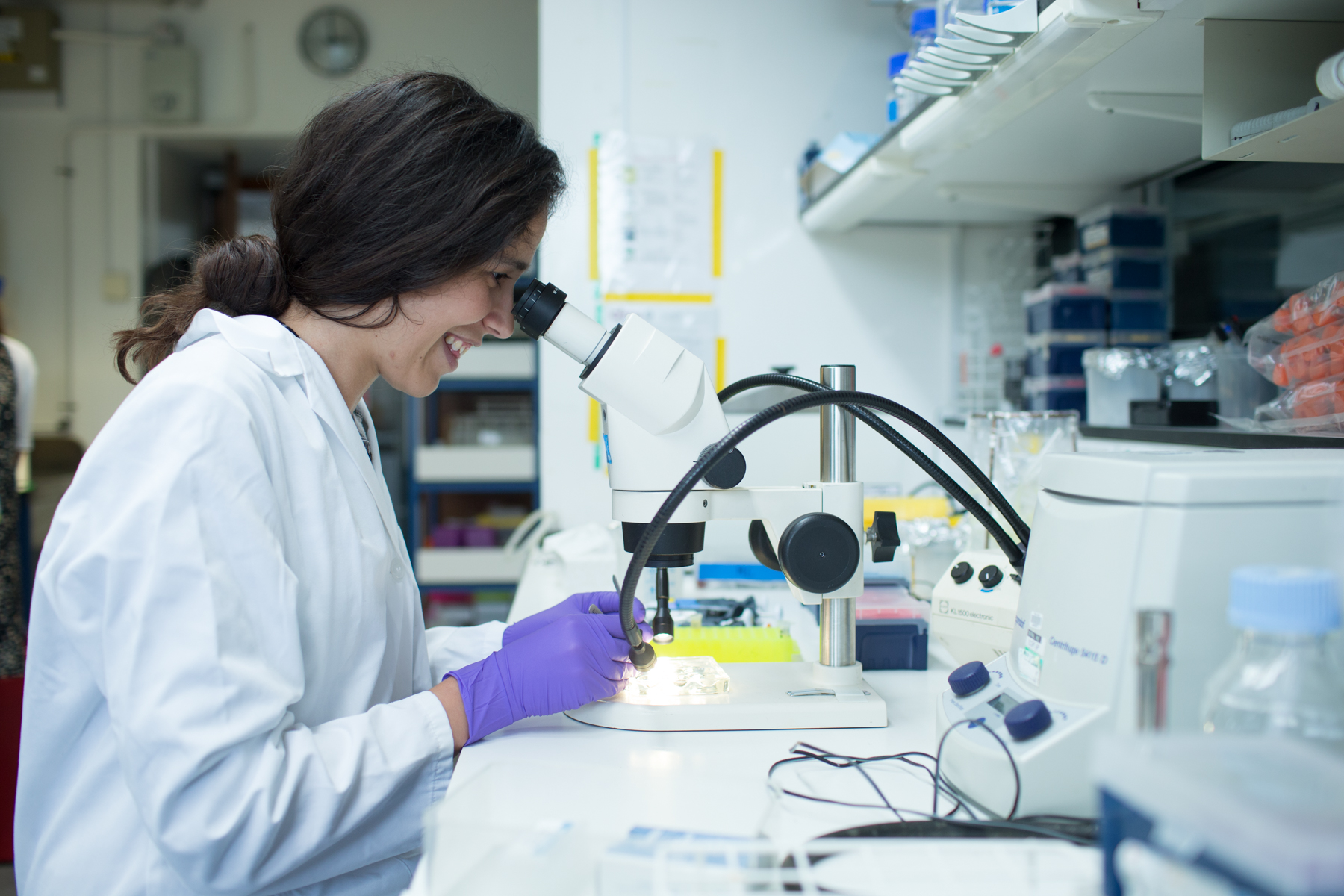If you or a loved one is affected by a genetic condition, it’s important to consider the range of genetic services and tests that might be available in your situation. Services and tests can be used for many different reasons, such as to get a deeper understanding of the condition in question, to see if the condition was passed down from parent to child, or as part of family planning.
This page aims to provide you with a starting point to better understand options in genetic services and testing, so that you can be better prepared and informed for any that are offered to you.
Why get a genetic test?
There are lots of reasons why someone might want to get a genetic test, including:
- Your doctors think you might have a genetic condition and they want to do a genetic test to find out
- Lots of people in your family have had a specific genetic condition, which might mean that you also have it
- You’re pregnant and a genetic test is happening to see if the baby has a genetic condition

Different types of genetics tests and services
There are different types of genetic tests, depending your personal situation:
- Diagnostic genetic tests are for when doctors think that someone might have a genetic condition based on symptoms that they have. Depending on your symptoms or circumstances, the test might check for a single specific genetic condition, or for many different ones
- Carrier genetic tests find out if someone carries the faulty gene that can lead to a genetic condition. If they do, there’s a chance that they’ll pass the gene onto any children that they have. However, in some genetic conditions, there has to be the faulty gene in both the mother and father for the child to have it – this is called a ‘recessive condition’. If someone has the faulty gene of a recessive condition, they’re known as a ‘carrier’ and might not themselves have the condition
- Predictive genetic tests tell us whether someone is likely to develop a specific genetic condition even when they have no symptoms. This is usually done in families that have been affected by a specific genetic condition, to see if someone in the family has it
- Pre-implantation genetic tests (PGTs) are a form of in vitro fertilisation (IVF). It’s used to help couples who have a high likelihood of passing on a severe genetic condition to their child
How do I access genetic services and testing?
There are genetic services and tests available through the NHS. You might be offered NHS genetic services if your doctors think that you might have a genetic condition, or think that you might pass the condition onto your child.
To get a genetic test on the NHS, there has to be a strong belief that you have a genetic condition or that you could pass it onto your child – a doctor won’t test you if there isn’t this belief. A doctor might ask for information about things like family history of genetic conditions or any symptoms that you have.
There are now lots of private companies offering to test genes for different things. These types of tests were designed to find things like lactose intolerance, not to diagnose conditions. If you think you might have a genetic condition or that you might pass a condition onto your child, it’s important to speak to doctors so that you can be assessed for NHS testing.
If you’re referred to NHS genetic services, you might speak with a genetic counsellor. These are professionals who you can talk to about genetic condition diagnosis, such as the risks and benefits of a genetic test and exactly what it would mean for you and your family to get a diagnosis or not.
Depending on your situation, the first step to getting a genetic test on the NHS would be to speak with your GP in order to get a referral to genetic services. If you’ve got family members already diagnosed with a condition, it might be that you can speak to genetic services directly.
See here for a list of NHS genetic services in the UK.
The benefits and disadvantages of genetic testing
Whether to take a genetic test or not can be a difficult decision, with benefits and risks to both options. The choice is down to you and it’s important to feel that you have all the right information and have discussed it with the right people, such as loved ones, doctors and genetic counsellors.
Benefits to having a genetic test include:
- More certainty. You might know more clearly whether you or a loved one has a genetic condition or are carriers of one. Even if the news is bad, it might help you to move forward and plan for the future
- Better support and treatment. Genetic testing can lead to more tailored or focused treatment and therapies, especially if a genetic condition is diagnosed
- Useful information for family planning. If you or your partner are at a high risk of having a child with a genetic condition, it might be possible to test the unborn child during pregnancy to see if they have the condition. Knowing you have an increased risk of having a child with a genetic condition might also be useful in your planning
- Useful information for family members. Finding out that you’ve got or carry a genetic condition could help family members in their own genetics journeys, as many genetic conditions run in families
Disadvantages of having a genetic test include:
- Dealing with very bad news. The genetic test might come back with extremely challenging information that you find difficult to process, such as diagnosis of a genetic condition that cannot yet be treated
- Inconclusive results. Sometimes, the genetic change in a person is too difficult to find, even when doctors are very confident that it’s there. It might also be impossible to know how severely affected someone will be because of a condition even when it’s diagnosed – including in unborn children. This can all lead to feelings of frustration, or not knowing the best next option
- An unnamed condition. Some conditions are so rare that we don’t even have a name for them. This can lead to more challenges, such as feelings of isolation or struggles to find adequate treatment. Our long-standing project, Syndromes Without a Name (SWAN UK), is here for everyone in this situation
If you’re considering any form of genetic services or testing, it’s important to speak with your GP or hospital consultant. However, being more informed can help ensure better decision-making and the right support.

Learn from first hand experience
Our former CEO, Louise Fish, and SWAN UK Parent Rep and member of Genomics England's Participants Panel, Lisa Beaton, feature on an episode of Genomics England's 'The G Word' podcast to discuss the impact of 'no primary finding' results from genomic tests, and explore common experiences and the role of hope.

